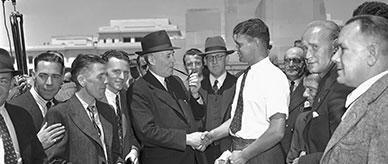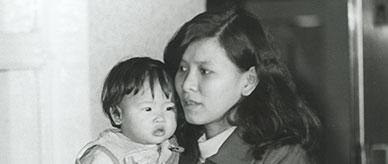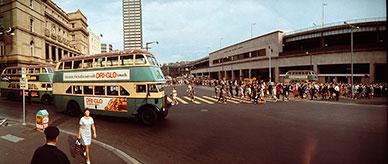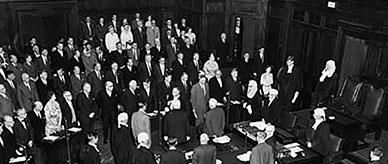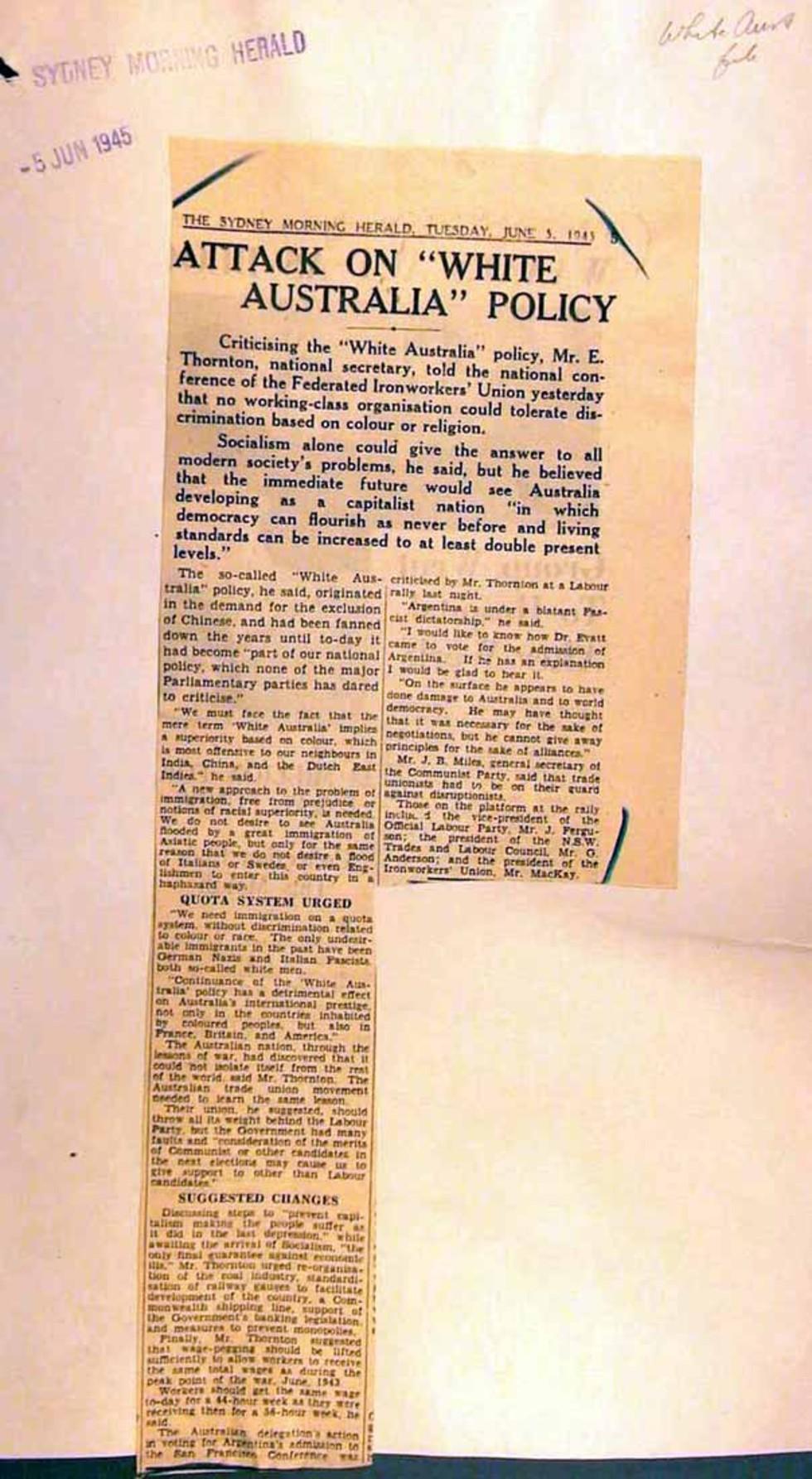


Transcript
[Newspaper clipping attached to a blank page. The page is stamped 'SYDNEY MORNING HERALD', '-5 JUN 1945'. Handwritten annotation in top right corner: 'White Aust [Australia] file'.]
[Underlined header:] THE SYDNEY MORNING HERALD, TUESDAY, JUNE 5, 1945
[Headline:] ATTACK ON "WHITE AUSTRALIA" POLICY
[Large text:] Criticising the "White Australia" policy, Mr. E. Thornton, national secretary, told the national conference of the Federated Ironworkers' Union yesterday that no working-class organisation could tolerate discrimination based on colour or religion.
Socialism alone could give the answer to all modern society’s problems, he said, but he believed that the immediate future would see Australia developing as a capitalist nation "in which democracy can flourish as never before and living standards can be increased to at least double present levels." [End large text.]
The so-called "White Australia" policy, he said, originated in the demand for the exclusion of Chinese, and had been fanned down the years until to-day it had become "part of our national policy, which none of the major Parliamentary parties has dared to criticise."
"We must face the fact that the mere term ‘White Australia' implies a superiority based on colour, which is most offensive to our neighbours in India, China, and the Dutch East Indies," he said.
"A new approach to the problem of immigration, free from prejudice or notions of racial superiority, is needed. We do not desire to see Australia flooded by a great immigration of Asiatic people, but only for the same reason that we do not desire a flood of Italians or Swedes, or even Englishmen to enter this country in a haphazard way.
[Subheading:] QUOTA SYSTEM URGED
"We need immigration on a quota system, without discrimination related to colour or race. The only undesirable immigrants in the past have been German Nazis and Italian Fascists, both so-called white men.
"Continuance of the ‘White Australia’ policy has a detrimental effect on Australia’s international prestige, not only in the countries inhabited by coloured peoples, but also in France, Britain, and America."
The Australian nation, through the lessons of war, had discovered that it could not isolate itself from the rest of the world, said Mr. Thornton. The Australian trade union movement needed to learn the same lesson.
Their union, he suggested, should throw all its weight behind the Labour Party, but the Government had many faults and “consideration of the merits of Communist or other candidates in the next elections may cause us to give support to other than Labour candidates.”
[Subheading:] SUGGESTED CHANGES
Discussing steps to "prevent capitalism making the people suffer as it did in the last depression," while awaiting the arrival of Socialism, "the only final guarantee against economic ills," Mr. Thornton urged re-organisation of the coal industry, standardisation of railway gauges to facilitate development of the country, a Commonwealth shipping line, support of the Government’s banking legislation, and measures to prevent monopolies.
Finally, Mr Thornton suggested that wage-pegging should be lifted sufficiently to allow workers to receive the same total wages as during the peak point of the war, June, 1943.
Workers should get the same wage to-day for a 44-hour week as they were receiving then for a 56-hour week, he said.
The Australian delegation’s action in voting for Argentina's admission to the San Francisco Conference was criticised by Mr. Thornton at a Labour rally last night.
"Argentina is under a blatant Fascist dictatorship," he said.
"I would like to know how Dr. Evatt came to vote for the admission of Argentina. If he has an explanation I would be glad to hear it.
"On the surface he appears to have done damage to Australia and to world democracy. He may have thought that it was necessary for the sake of negotiations, but he cannot give away principles for the sake of alliances."
Mr. J. B. Miles, general secretary of the Communist Party, said that trade unionists had to be on their guard against disruptionists.
Those on the platform at the rally included the vice-president of the Official Labour Party, Mr. J. Ferguson; the president of the N.S.W. Trades and Labour Council, Mr. G. Anderson; and the president of the Ironworkers’ Union, Mr. MacKay.
Related themes
Need help with your research?
Learn how to interpret primary sources, use our collection and more.

